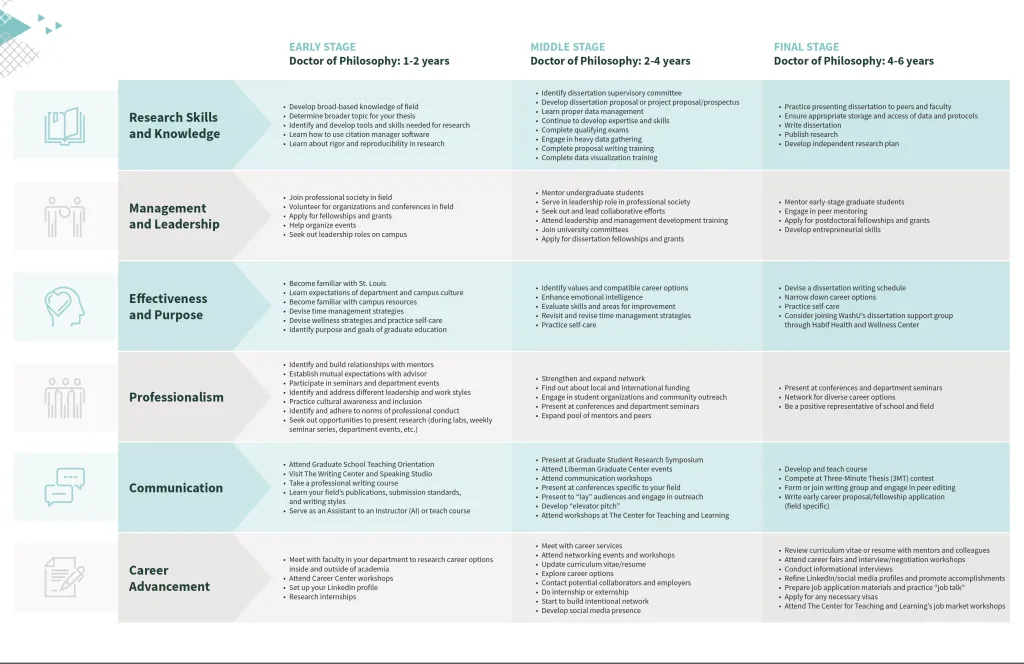Early Stage, Doctor of Philosophy: 1-2 years
- Develop broad-based knowledge of field
- Determine broader topic for your thesis
- Identify and develop tools and skills needed for research
- Learn how to use citation manager software
- Learn about rigor and reproducibility in research
- Join professional society in field
- Volunteer for organizations and conferences in field
- Apply for fellowships and grants
- Help organize events
- Seek out leadership roles on campus
- Become familiar with St. Louis
- Learn expectations of department and campus culture
- Become familiar with campus resources
- Devise time management strategies
- Devise wellness strategies and practice self-care
- Identify purpose and goals of graduate education
- Identify and build relationships with mentors
- Establish mutual expectations with advisor
- Participate in seminars and department events
- Identify and address different leadership and work styles
- Practice cultural awareness and inclusion
- Identify and adhere to norms of professional conduct
- Seek out opportunities to present research (during labs, weekly seminar series, department events, etc.)
- Attend Graduate School Teaching Orientation
- Visit The Writing Center and Speaking Studio
- Take a professional writing course
- Learn your field’s publications, submission standards,and writing styles
- Serve as an Assistant to an Instructor (AI) or teach course
|
Middle Stage, Doctor of Philosophy: 2-4 years
|
|
- Identify values and compatible career options
- Enhance emotional intelligence
- Evaluate skills and areas for improvement
- Revisit and revise time management strategies
- Practice self-care
|
- Present at Graduate Student Research Symposium
- Attend Liberman Graduate Center events
- Attend communication workshops
- Present at conferences specific to your field
- Present to “lay” audiences and engage in outreach
- Develop “elevator pitch”
- Attend workshops at The Center for Teaching and Learning
|
Final Stage, Doctor of Philosophy: 4-6 years
- Practice presenting dissertation to peers and faculty
- Ensure appropriate storage and access of data and protocols
- Write dissertation
- Publish research
- Develop independent research plan
|
|
- Present at conferences and department seminars
- Network for diverse career options
- Be a positive representative of school and field
- Develop and teach course
- Compete at Three-Minute Thesis (3MT) contest
- Form or join writing group and engage in peer editing
- Write early career proposal/fellowship application(field specific)
- Review curriculum vitae or resume with mentors and colleagues
- Attend career fairs and interview/negotiation workshops
- Conduct informational interviews
- Refine LinkedIn/social media profiles and promote accomplishments
- Prepare job application materials and practice “job talk”
- Apply for any necessary visas
- Attend The Center for Teaching and Learning’s job market workshops
